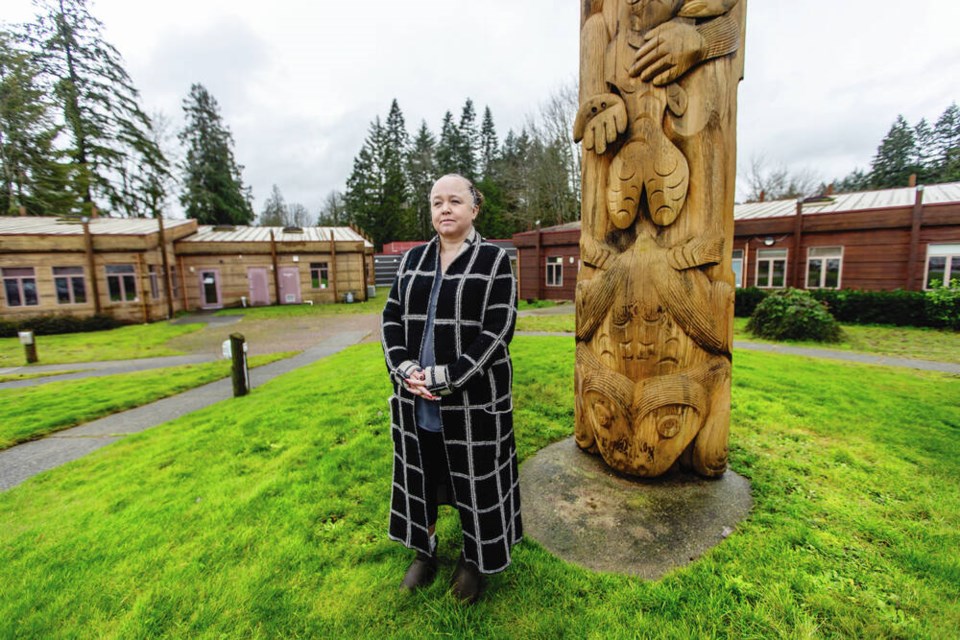Cowichan Tribes members have voted 74 per cent in favour of a new education agreement with the federal government that will allow the community to govern its own education.
The agreement will cover two existing Cowichan Tribes schools — a kindergarten-Grade 4 elementary school that is being expanded to Grade 7, and a high school for Grades 8-12 that offers the standard B.C. Dogwood completion certificate upon graduation.
Cowichan Tribes is one of 13 B.C. First Nations that have been negotiating with the federal government over education authority, and the fourth to reach an agreement after the Lil’wat Nation near Mount Currie, the Seabird Island Band near Agassiz and the ʔaq’am, a community near Cranbrook that is part of the Ktunaxa Nation.
The Cowichan Tribes elementary school, which is moving to an immersion program for the Hul’qumi’num language, currently has 111 students, while the high school has 18 students, said Stephanie Atleo, education jurisdiction negotiator for Cowichan Tribes.
Atleo said the immersion program is modelled after a similar initiative at the Lauwelnew Tribal School on the Tsartlip First Nation on the Saanich Peninsula.
Nothing will change for Cowichan Tribes members attending schools in the Cowichan Valley School District, she said.
“Our kids have the right to go to our schools or go off-reserve to public or private,” Atleo said. “Our support for those students remains the same.”
She said the Cowichan Valley School District has been striving to include First Nations elements at its schools.
“They’re working very hard at implementing culture and language in their program,” Atleo said.
She said she is hopeful the relationship that has developed with the school district could lead to aspects of the Cowichan Tribes curriculum being used in the public system.
Tribes schools will continue to follow the provincial curriculum “for now,” Atleo said.
Later, the First Nations that have an agreement with the federal government will come together and determine curriculum standards, she said. “Then we’ll implement that in our community, specific to our own culture and language.”
Teachers in Cowichan Tribes schools currently need to be certified and have an education degree, which will continue until Cowichan Tribes has its own system in place, Atleo said.
Each community will decide what qualifications and education they want their teachers to have to teach in their schools, she said.
“Where it becomes a big thing for us is the culture and language teachers,” Atleo said. “We have a lot of teachers in our community that don’t have the degree, that we will be able to qualify as culture and language teachers to be in the classroom with our kids.”
She said negotiations with the federal government began in 2006 and she has been involved for two and a half years.



